
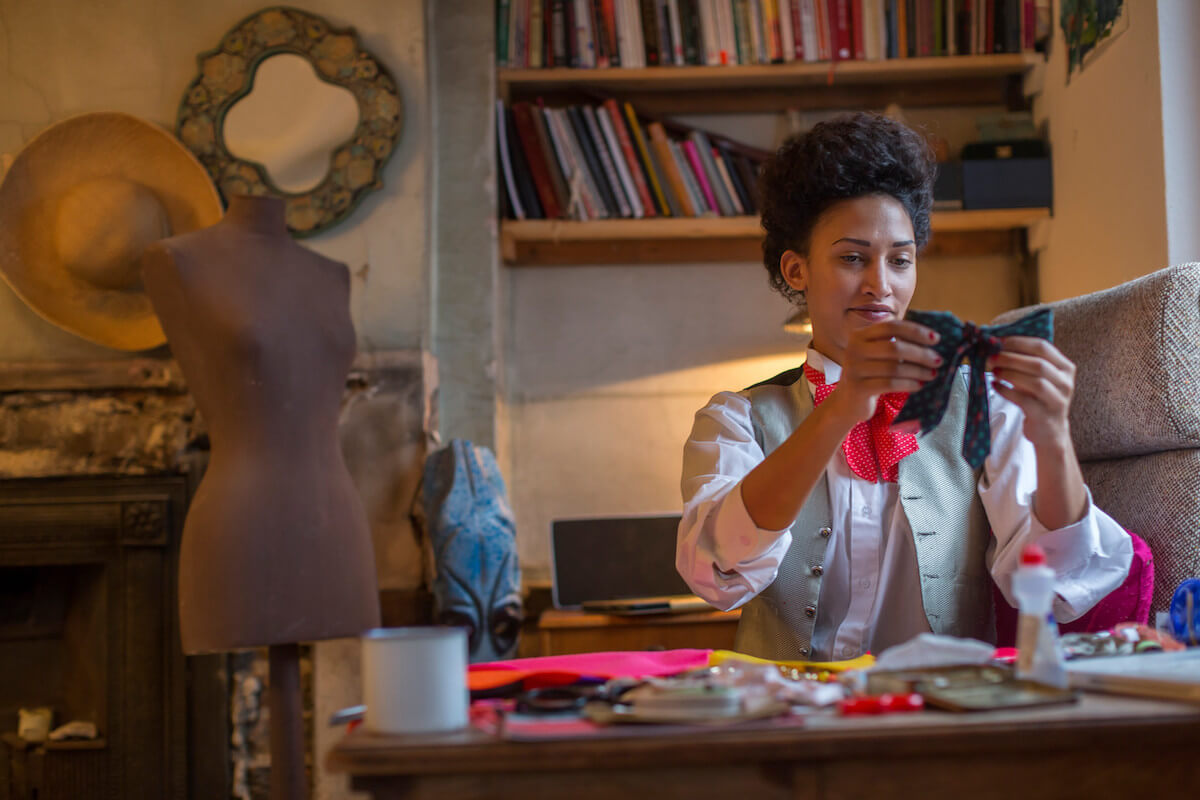
- Author Bulk Hemp Warehouse
- Categories: Hemp Education, Hemp Fabric
Questions to Ask a Sewing Contractor Before Issuing a Cut
At Bulk Hemp Warehouse we are frequently approached by new entrepreneurs wishing to start a business utilizing our hemp fabrics.
Whether they are making apparel, accessories, or home furnishings, this is the first time they are entering this industry.
Unless you are doing the manufacturing yourself, you will need to employ a sewing contractor. They will be the company who does the cutting and sewing of your product.
A good sewing contractor will produce your items to your specifications as well as ensuring its durability.
On the other hand, a poor sewing contractor could destroy your business with poor sewing quality or products that don’t adhere to your vision.
It is extremely important you get the right sewing contractor since they will be your partner in your endeavor.
We are providing a list of questions you must ask a sewing contractor before choosing them and issuing an order.
Following these guidelines will help you be successful in your business.
1. What kind of garments / fabric do you specialize in sewing? What fabrics are your machines set up to sew presently?
NEVER, NEVER, NEVER, use anyone who says they can sew anything.
This is a person who:
- doesn’t really have the proper experience needed to run a sewing factory, or
- is desperate for work.
(This of course excludes a sample sewing shop set up to exclusively sew samples of all types of garments.)
All machines have to be set up with certain plates, teeth, and needles to sew a specific weight of fabric.
Although plates, teeth, and needles can be changed, it is not a good idea for a factory worker to do so because it will most definitely change the timing of the machine.
This can cause what looks like to be an acceptable stitch into a stitch than can cause a defect in your garment in the future.
You can ask to check plate sizes, feet, and teeth to see what a factory is truthfully sewing.
Make sure you check each and every sewing machine before you allow a contractor to start sewing your garments.
Usually you can follow the floor manager around while he/she checks the machines. Don’t assume that all feet being used are correct. They’re usually not.
2. How long have you been in business?
This question will give you immediate knowledge in the level of experience that a factory has. If they have been in business less than 2 years, it is a good idea to ask the next questions.
3. Are you registered with the state?
4. Do you have Workers Compensation Insurance?
5. Do you have liability insurance?
6. What does your policy specifically cover?
7. Do you have your contractors license?
8. What prior experience have you had in the sewing industry?
Make sure the factory is run by an experienced individual who has had hands on experience in the daily operation of running a contracting facility.
Always be cautious of going with a new factory, check policies yourself and don’t assume you will get your money back (or your garments) if the factory experiences theft or fire.
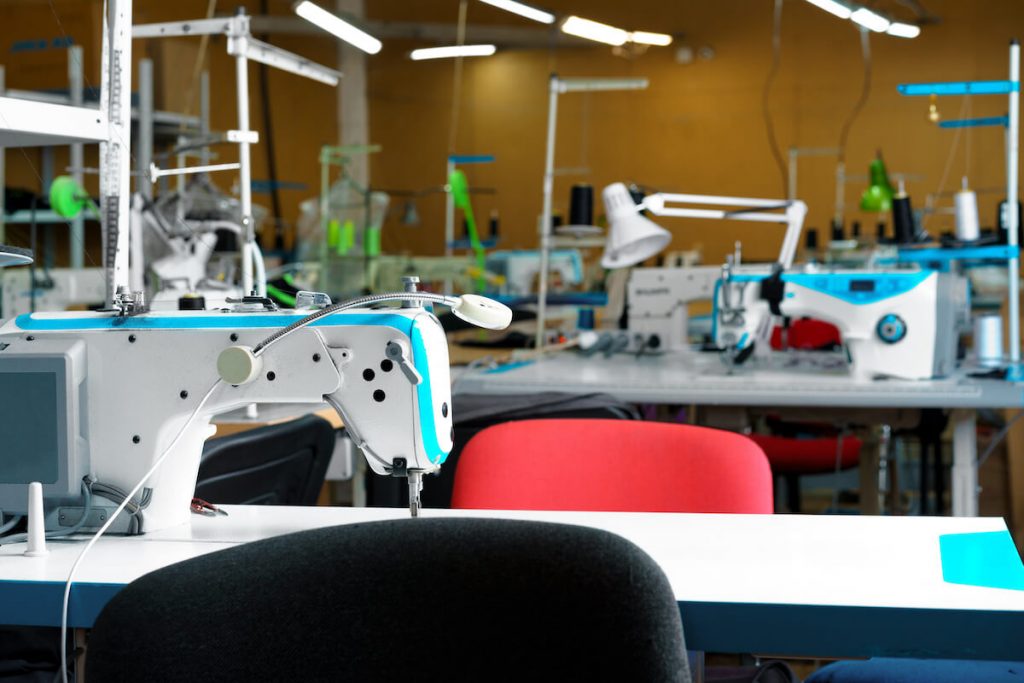
9. What kind of volume do you put out on a weekly and monthly basis?
Make sure you ask to see the finishing department of the factory when asking this question. Ask if all finishing is done at that specific location.
Make sure you see all the machines that are required to finish your garments —The button sewer machine, button hole machine, bar-tack, key hole, pressing equipment and kick press with the proper dyes are just some of the machines for which to check.
Also visit the trimming and folding department.
You will be surprised that most factories don’t have this expensive equipment and the work is often contracted out.
This is how your garments disappear. Don’t assume your work is being sewn/finished in house.
10. How busy are you? Do you plan on taking on any more work in the near future? Do you refuse jobs when you are too busy?
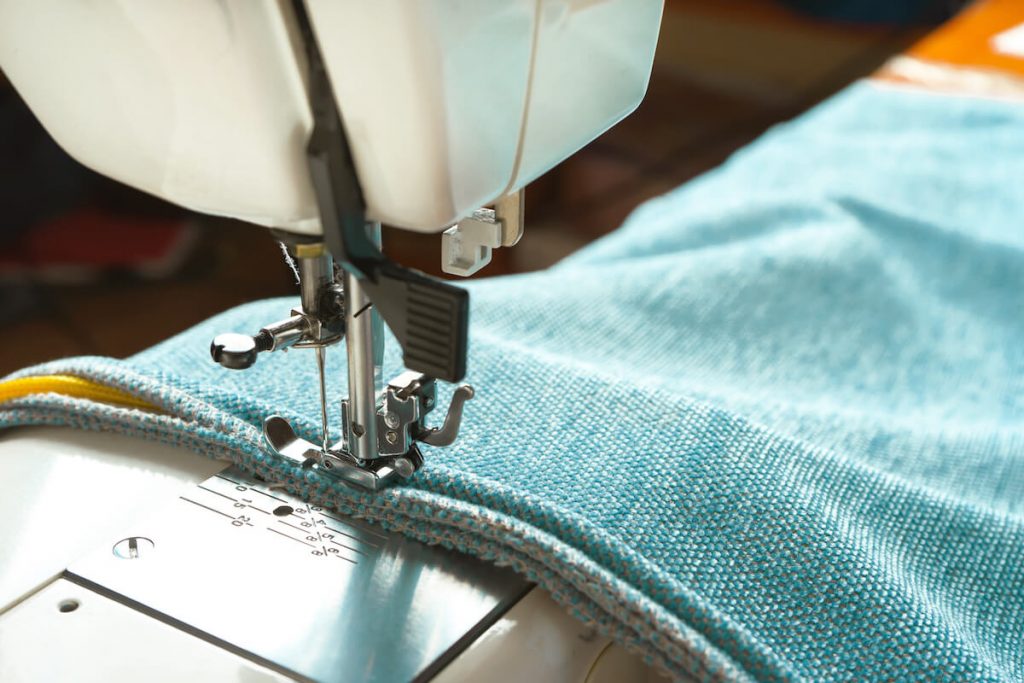
11. What kind of thread are your going to use on my garments?
You must demand the factory use the color of the thread and the weight you want.
Make sure they have it in stock before starting your cut. If they don’t have it, make them purchase it from a local thread wholesaler.
Never mix threads, it will cause skipping and possibly throw the machines out of timing. This will slow down your production process.
Make sure the employees aren’t mixing threads, try to walk the floor and lift up the cones to check that the sizes are correct and that they are all the same.
Don’t assume things are being done correctly.
Wrong thread weight will only come back to haunt you when the customer returns a lot that you shipped and the garments are exploding in the seams.
IN THE EVENT YOUR CUT IS PLACED IN A FACTORY WITH VARIOUS OTHER CUTS…
Always count how many workers are sewing your garments.
You should take down the employees names and operation they are performing.
Make sure that they are performing the same operation the next day.
This must be true for all employees everyday until your cut is complete.
If you walk into a factory that has 40 employees and 10 are working on your cut, make sure the same 10 are still working on your cut tomorrow.
If you see a substantial change, you may have problems. Don’t assume the floor manager is looking out for your best interest. Keep an eye on your items yourself.
The manager is worried about finishing all the cuts in the factory and keeping their employees continuously busy. Stay on top of the game our you will lose!
The best time to use a contractor, obviously, is when they are slow.
Not only will they usually start working on your cut immediately, but your negotiating power on price is increased substantially.
Always remember not to “take advantage” of the factory, it usually shows in the quality at the end of the cut. BE REASONABLE.
12. How long has your staff worked for you? Do you have a big turnover in employees?
Take one day every month to write down all the names of the workers in each factory you use by copying time cards. Compare your list with the current cards every month to analyze turnover. If you see big turnover, you’ll see inconsistent quality.
This means one cut that is difficult to sew might turn out perfect and another cut that you feel is easy can actually be completely ruined.
You never know what is actually going on between an owner and his/her employees and it is not really your place to ask.
Never assume because one cut was completed perfect, that all cuts will turn out the same.
13. Who is your floor manager(s) and are they qualified to manage the sewers sewing my garments? Do they speak my language; Can they read my spec sheets?
There is no purpose in handing the manufacturer a picture of something with instructions that he/she can’t understand.
Make sure your instructions are translated for each employee that will be working on your garments.
Make the floor manager translate your specs for you before starting.
The floor manager should be knowledgeable of plates, teeth, needles, threads, etc.
Check what you know with what they tell you. Ask him/her about their background and past experience.
15. Can I be present during the process of cutting and sewing the product?
Make sure you are there specifically at the time to watch the process start.
Check the first several finished products which are completed to make sure they look they way you expect.
Be sure to check the quality of the product at this time. Ask to come back when they say they’ll be finished.
This will be the point when you ask if any pieces are missing from your cut.
Make sure the person in charge of bundling is organized and knows what they are doing.
Don’t feel bad by standing around and asking questions.
Remember, you are the client! A good factory worker will enjoy educating you.
The more questions you ask, the more your will understand the order of operations on each garment you manufacture.
You will then learn what to look for when walking the floor during the production process.
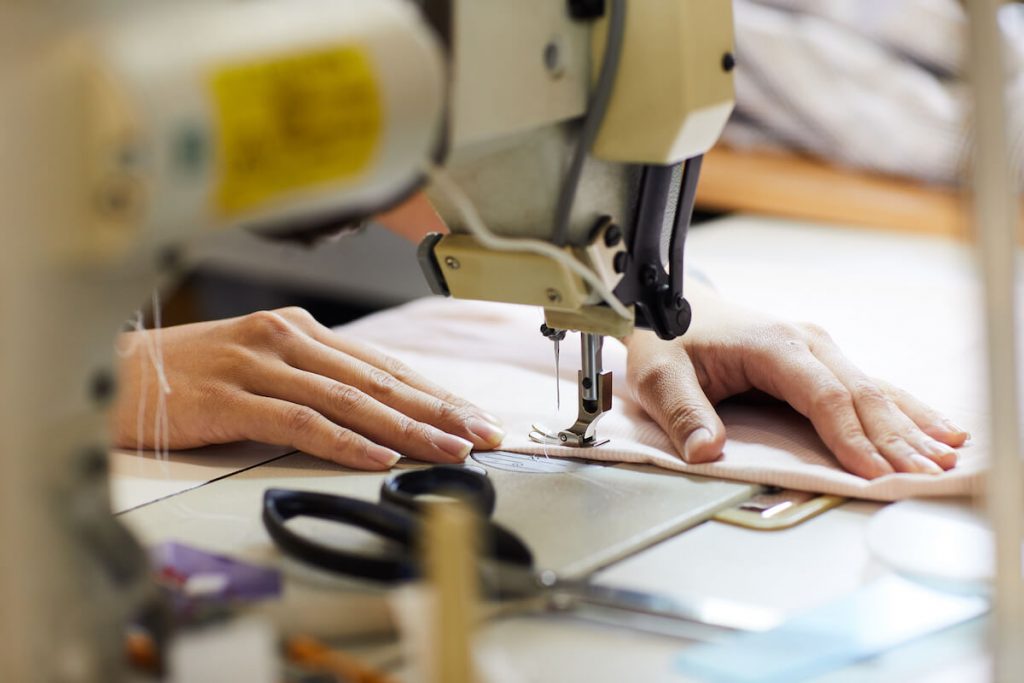
16. What size needles are you going to use when sewing my garments?
Contact your local industrial sewing machine supplier before starting a cut if you don’t know the proper size needle to use on your fabric.
Using the wrong size needles may result in numerous tiny holes throughout your garments which in turn may weaken the fabric and could eventually spread into a large, noticeable holes.
As a production manager or designer having samples made, it is your job to make sure that the needles, plates, and thread are checked every day or your job will become miserable.
Don’t assume the needles being used on your garments are the proper needles.
By asking these simple, yet very effective questions before you decide to place a cut with an unknown or new factory, you will save yourself (and your company!) time, money and unnecessary problems!
OTHER EDUCATIONAL HEMP POSTS
Explore Other Posts by Bulk Hemp Warehouse

What is Hemp Wick and How to Use a Hemp Wick
Ever wondered what is hemp wick and how it can provide a healthier way to light your favorite herbs while extending the life of your lighter? Organic hemp wick is a natural choice that’s been somewhat under the radar when
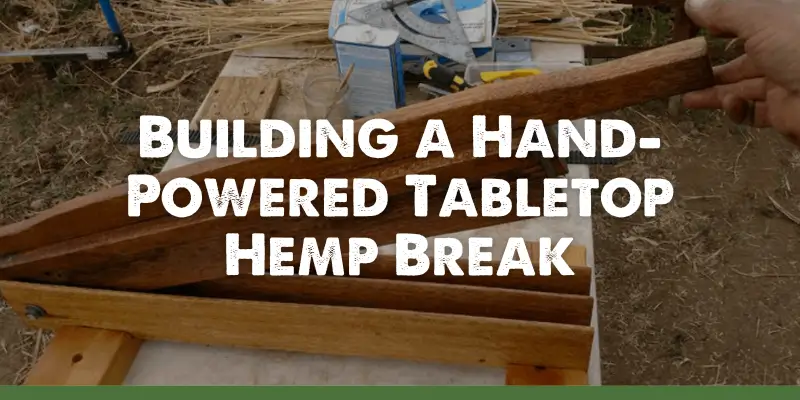
Building a Hand-Powered Tabletop Hemp Break
OPEN SOURCE PLANS Created by Rezolana Institute & Growing Warriors Published by Fibershed and supported by Clif Bar Family Foundation Why a hemp break? The table top model hemp break is a useful tool for small scale decortication of hemp

Discover the Power of Hemp Seed Meal: A Game-Changer in Pet Nutrition
Hemp seed meal is it. It’s a complete protein source with essential fatty acids that boost your pet’s health. Hemp seed meal comes from the Cannabis sativa L. plant. It’s becoming a top choice in pet nutrition. Pet owners and







